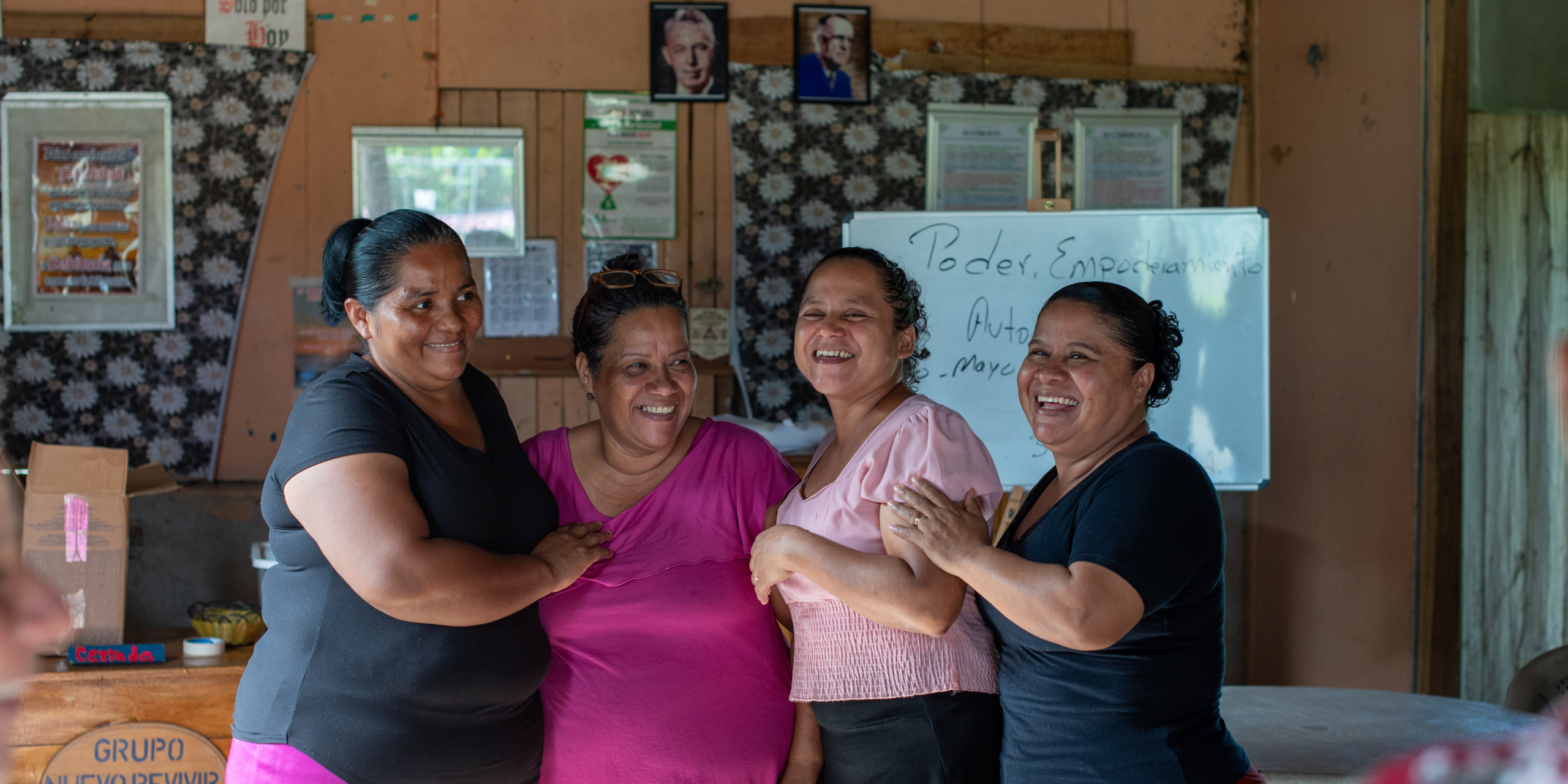EARTH Futures, Trudi’s, and CARE Guatemala came together with the conviction that investing in women is key to building a more sustainable and equitable future for rural communities. Based on this premise, in August 2025 they designed Partnership for Good, a project based in the communities of Santa Marta and Luzón, in Matina, Costa Rica. The project was launched with a clear purpose: to empower rural women and youth by providing access to knowledge, resources, and support networks that enable them to transform their reality, strengthen food security, boost the local economy, and lead the future of their communities.
The teams from CARE and EARTH Futures, the global solutions center of EARTH University, have been responsible for designing training modules, identifying community needs, and implementing workshops aimed at addressing the main challenges they face, including limited economic opportunities, lack of entrepreneurial skills, consumption of unhealthy foods, gender inequality, unequal access to essential services, and the impact of climate change on food production.
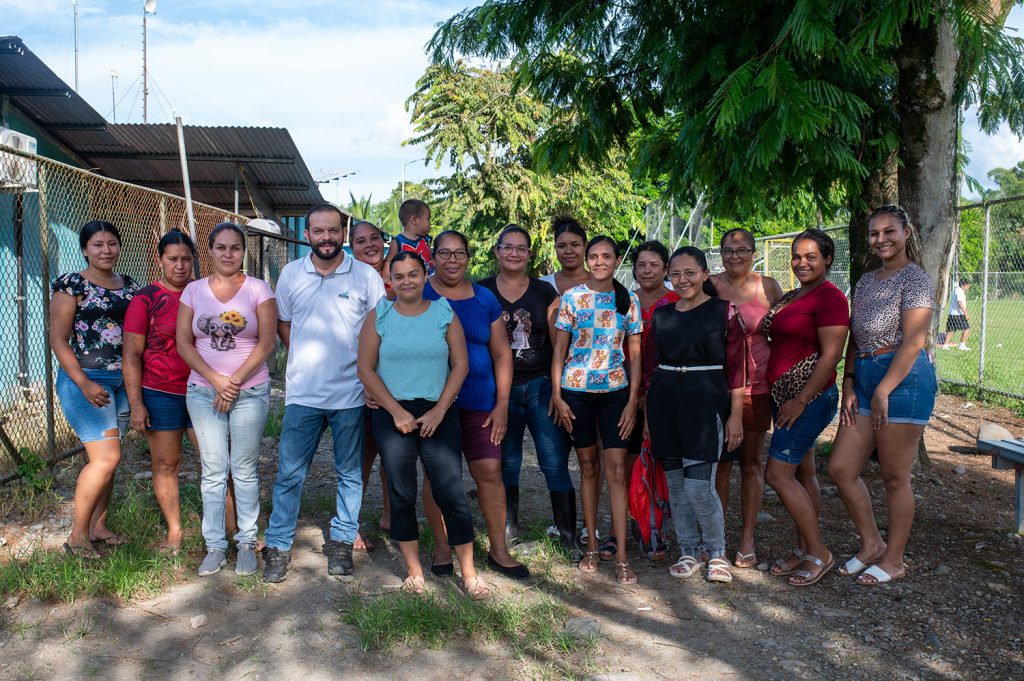
More than 150 women are enrolled in Partnership for Good, and over the course of 10 months they will participate in workshops and training sessions created under the “learning by doing” model, which allows them to acquire knowledge and skills in a practical and engaging way. These training spaces focus on three areas of impact:
- Gender Equality: Participants will learn about their rights, about which institutions ensure those rights are respected, and how to improve their lives through tools to develop assertive communication, self-esteem, and leadership.
- Food Security: Training is based on sustainable agricultural production, including the establishment of community and family gardens and the provision of agricultural supplies. Participants will learn about the importance of knowing the origin of food, nutritional values, and balanced diets to improve health.
- Business and Financial Management: This includes guidance on designing business plans, creating microenterprises, and accessing markets. In addition, some participants selected for their commitment to the project will receive seed capital to strengthen or launch a new business.
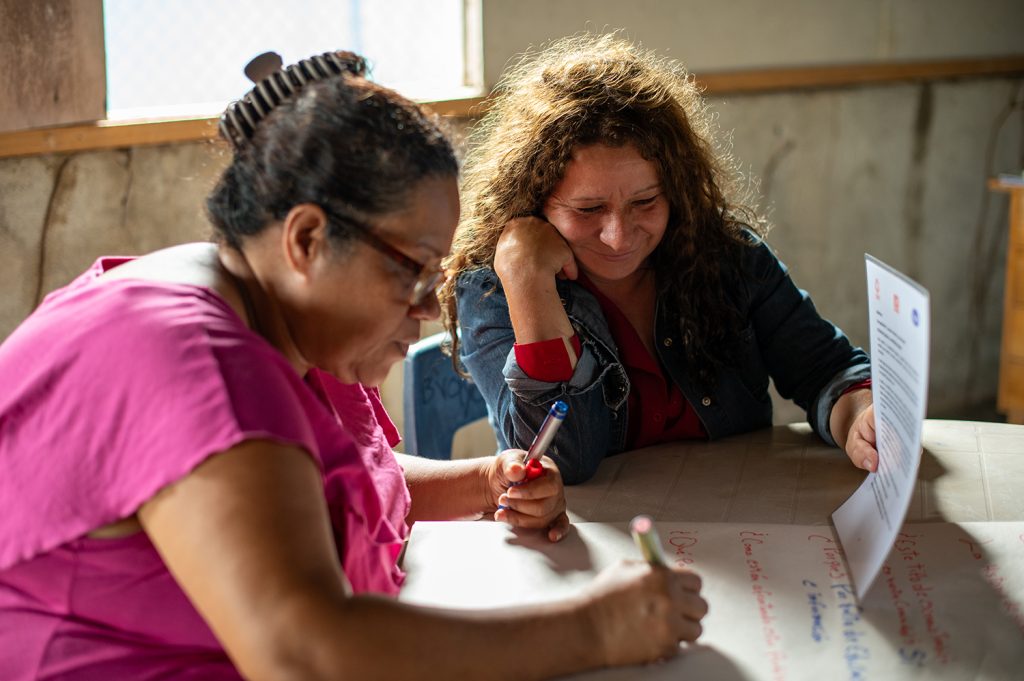
“Working with female heads of households in Santa Marta and Luzón highlights the urgent need in these communities for training with a focus on family wellbeing, because when the head of household is well, the family prospers. After delivering a workshop on empowerment and self-esteem, several participants confirmed the project’s relevance. They expressed that these gatherings give them the confidence and courage they need to face life and its challenges. It is evident that women are overcoming barriers. There is a noticeable decrease in the fear of speaking up, participating, and voicing opinions about the situations that affect them. This makes the importance of these trainings and the impact of the project even clearer,” says Pedro Chinchilla, Project Coordinator at EARTH Futures.
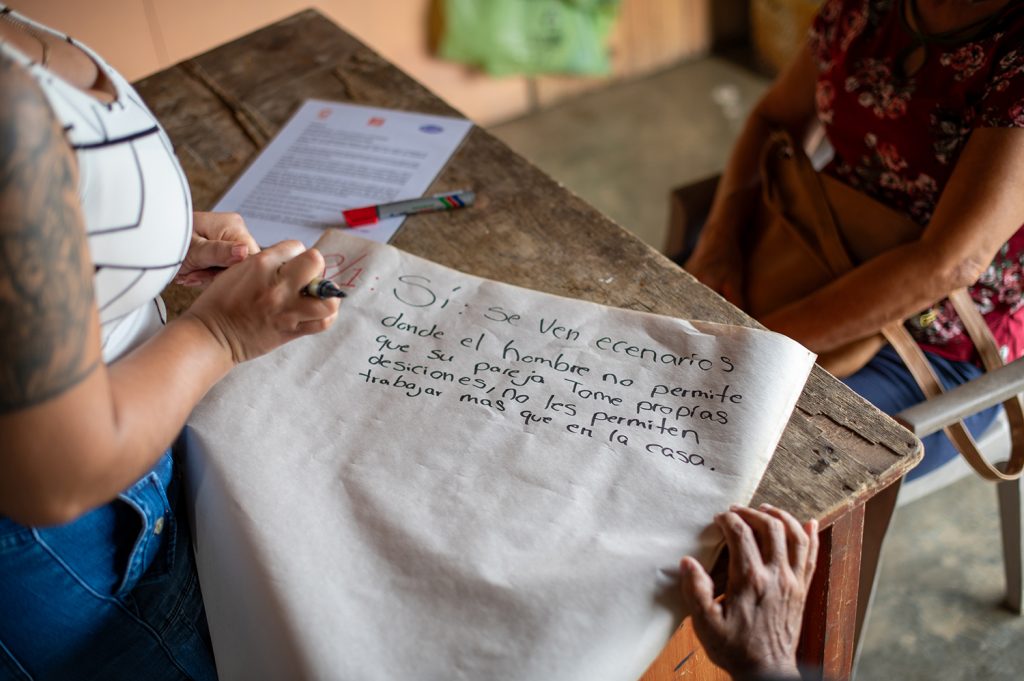
Another key element of Partnership for Good is promoting strategic connections with government agencies, ministries, and local community members to expand access to services and promote communication campaigns about women’s rights. The goal is for participants to understand how these institutions work, how to request support, and how to establish alliances that benefit the entire community. This is a fundamental step toward encouraging the creation of a new generation of community leaders who work toward both individual and shared goals.
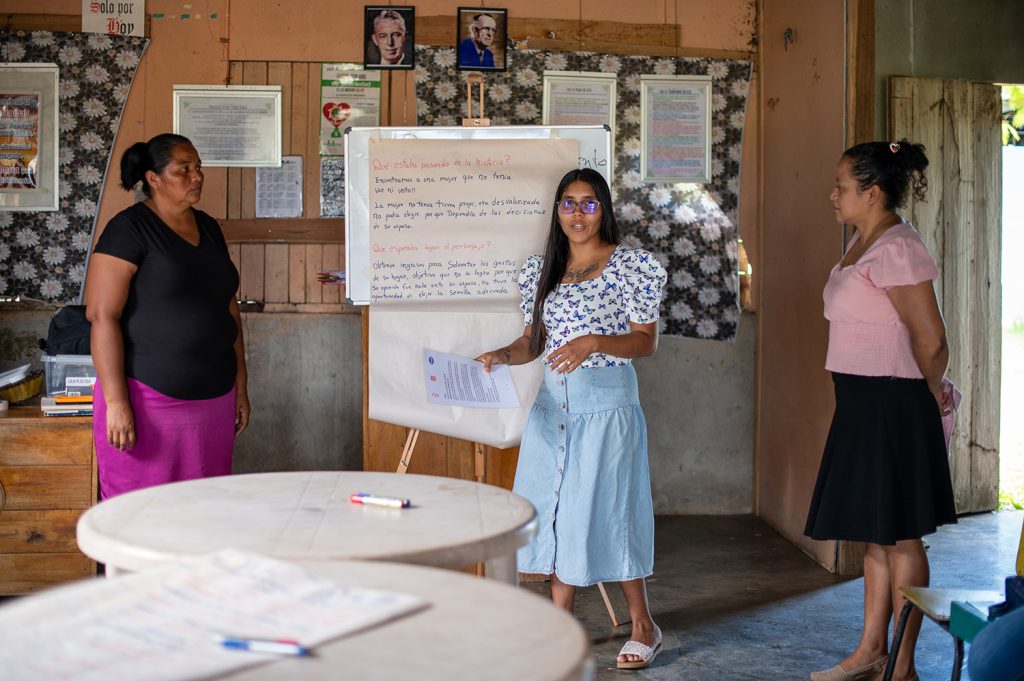
“These workshops train us, help us to empower ourselves, and allow us to see ourselves as capable women. Empowerment, for me, means feeling secure, beautiful, fearless, and certain that I can achieve all my goals. Here, I also find the possibility to expand my business, rely on other women, and grow together,” says Sulki García Alfaro, one of the participants.
At EARTH, we emphasize the importance of having allies like CARE and Trudi’s to create projects that become seeds of change. Our goal is for this model to grow and be replicated, reaching thousands of rural women who, with their leadership and determination, are laying the foundation for a more just, equitable, and sustainable future.
